Akira Nakamura
Рождение : 1916-04-07, Ikebukuro, Tokyo, Japan
Смерть : 1969-12-09

Dr.Sakurai
An evil brain from outer space unleashes monsters with deadly diseases on Earth with trying to conquer the universe. Superhero Starman must battle them all to save his planet.

Akihiko, the father
The last film produced by Shintoho.

Michi's father
A leading postwar Japanese film critic and theorist who co-founded the seminal film magazine Eiga Hihyo (Film Criticism) in 1957, Eizo Yamagiwa made his directorial debut with this independent feature—long thought lost until a negative was recently discovered—about a group of idle bourgeois students known as the “Roppongi Tribe” (Roppongi zoku). Depicting the resignation and nihilism of the postwar generation in the years following the Anpo Treaty conflicts through a coming-of-age narrative, Yamagiwa offers sharp criticism of the prevalent characterizations of Japan's new youth offered by Nikkatsu's taiyozoku (“Sun Tribe”) films and the New Wave at large.

Kazuko Matsuo sings the theme song to this drama film.

Vice principle
Home drama about tin craftsmen and their families in downtown Tokyo. Though poor, they do not lose their cheerfulness or give in to oppression.

Professor Yajima
A group of sinners involved in interconnected tales of murder, revenge, deceit and adultery all meet at the Gates of Hell.

Two lovers lost in the mountains. In what direction do not go, they find themselves in a mysterious forest pond, as if some kind of force does not want to let them go. Once upon a time, over a century ago, there had been a crime, whose shadow still hovers over these places.
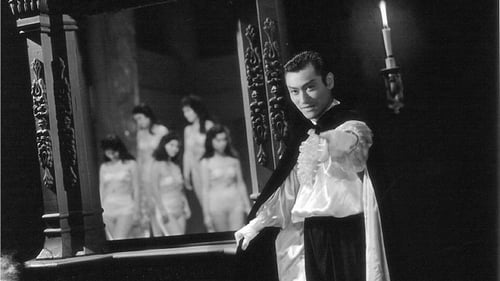
Shigekatsu Matsumura
Tamio takes Itsuko to an art gallery and the two find one painting is a nude portrait of Itsuko's mother, who disappeared twenty years ago when she was just a baby. No one knows the first thing about the artist who painted it, but he goes by the name Shiro Sofue, and he's always wearing shades in the daytime...

Japanese crime film
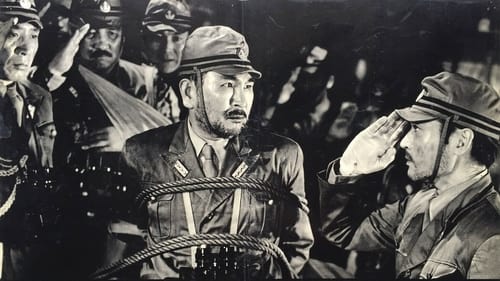
Priest Hanayama
In 1941, overpopulated Japan faces an economic boycott and its armed forces push further to the south. And despite negotiations between Japan and the U. S. A. war is declared with the attack on Pearl Harbour. Victories follow for Japan on land and sea and her forces push forward to the borders of India. But gradually the tide turns in favour of the Allies and after the atom bombings of Hiroshima and Nagasaki, Japan is compelled to accept the Potsdam Declaration and by the order of the Emperor agrees to unconditional surrender. Under the supervision of the occupation forces the International Military Tribunal opens in Tokyo to try the Japanese war leaders. Established in the cause of justice, and to prevent future aggressive wars the trials drag on for two and a half years. And on December 23, 1948, General Tojo and six other war leaders mount the thirteen steps to the gallows at Tokyo's Sugamo prison.

First film in Teruo Ishii's Line series.

Desiring another officer’s new wife, a military police lieutenant fabricates evidence of treason that consigns the innocent man to torture and a firing squad. The lieutenant rapes the wife, but is haunted by bad dreams which after he is assigned to a battalion with the victim’s brother.

Shigenobu Hishikawa
A painter leaves his family to paint the homes of his rich clients. A lonely, ruthless samurai falls in love with the painter's wife and rapes her. He later murders the painter and his servants. From the afterlife, the painter's ghost seeks revenge on the samurai, and saves his wife and newborn child.

The 7th Super Giant film. Super Giant battles a marauding alien brain-like creature created by a mad scientist and an alien army. (stand-alone episode)
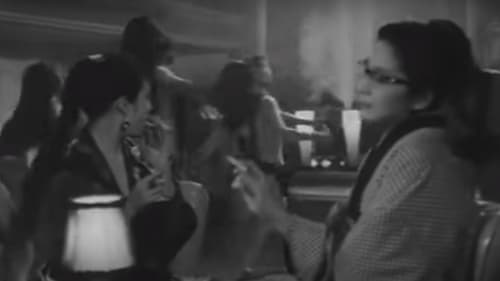
Director Teruo Ishi's crime action follows the investigative adventures of an undercover cop working with a prostitution ring. It's done in an unique documentary style.
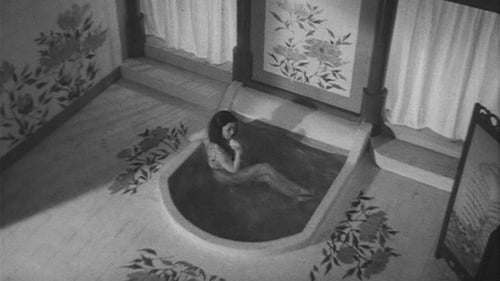
Jinjûrô Koga
In 1870's Tokyo, Den steals to support the daughter of her first marriage and her consumptive second husband. She falls in love with a young policeman, but is coerced into becoming the mistress of and procurer for a vice boss.

1958 jidaigeki directed by Masaki Mori for Shintoho.

The 4th Super Giant film, in which he continues his fight against the Kapia Aliens (Part 2 of 2)

The 3rd Super Giant film, in which he saves Earth from the threat of the reptile-like Kapia Aliens.

Shinzaemon Fukami
A blind masseur visits a samurai to request the return of a loan. The samurai kills him in anger, then has his servant dump the body in the Kasane swamp. However, the ghost of the masseur returns to haunt the samurai, who kills his wife by mistake and then goes to the swamp and drowns himself. 20 years later, the masseur's daughter unknowingly falls in love with the samurai's son who has been brought up to be a servant. After she is horribly disfigured in an accident, he plots to run away with another woman, but the path of their escape lies by the Kasane swamp...

Fictionalized retelling of the life of a Geisha poisoner.

Yukio
Праздный путешественник, дилетант-критик по имени Симамура, приезжает на север Японии, в Снежную страну, чтобы вновь встретиться со своей любовницей — гейшей Комако. Но в поезде он замечает другую девушку — Ёко, которая в видении Кавабата олицетворяет нереальный мир, мир зеркального отражения.
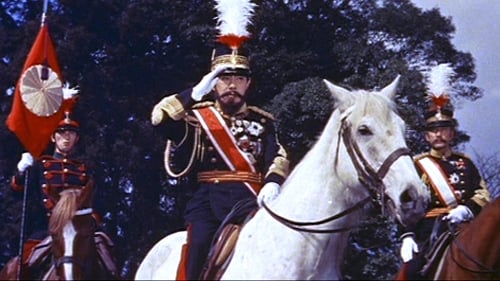
Admiral Itō
Meiji Tenno portrayed the ramp up to the Russo-Japan War. In addition to showing the political events that led to war, it also showed the era from the story of a farm family in rural Japan who sent their son off to war. As such, it could be considered an anti-war movie, showing how, while war is devised by governments, the people do not really understand what war is, and it's combatants often do not know what they are fighting for.

An exciting historical drama in which a beautiful woman secretly solves the family problems of the Owari clan. Hibari Misora plays two roles: a charming princess and a dashing youngster, performs songs and dances throughout the film until the big decisive battle.

Admiral Isoroku Yamamoto leads the Combined Fleet of the Imperial Japanese Navy to defeat the American Fleet.
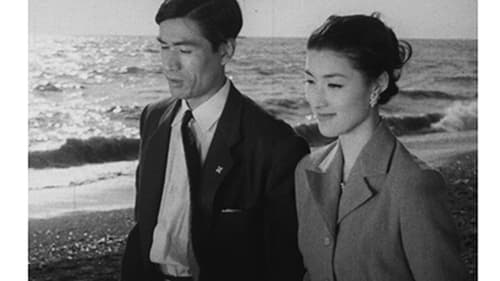
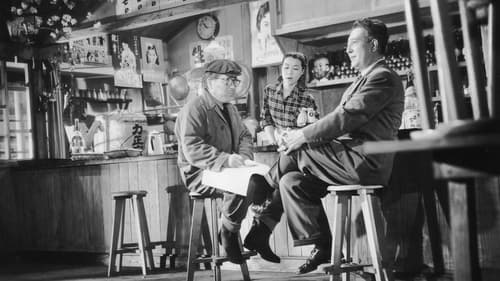
Taga
Takes place in one place, a beer hall, over the course of one evening. Uchida employs this concentration of setting and time to fashion a microcosm for a group portrait of Japan. One by one, the regulars of the bar appear: the pianist who dreams of becoming a composer but has disappeared from the music world after a knifing; a stripper who had planned to be a ballet dancer; an elderly painter trying to make a living at pachinko, and who rues his art having been used for militarist propaganda during the war; a young waitress considering elopement; a colonel turned real estate broker who attempts to rouse the crowd in military song until he realizes the tune has been transformed by marchers in the street into a leftist chant. The "twilight" is more than just a time of day; here, it is a state of being, a suspension between past and present, between the camaraderie of the saloon and the harsh world outside.
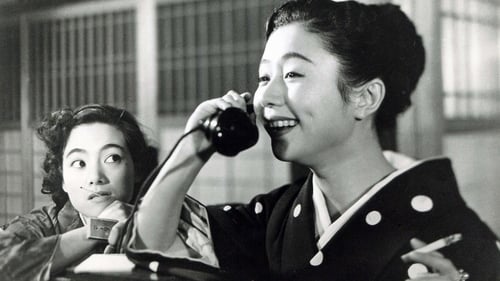
Кёити Мита происходит из уважаемой семьи, он может позволить себе быть честным и прямо заявляет начальству в лицо, что он думает. В итоге его из менеджеров понижают до простого работника и отправляют в Осака. Все меняется в его жизни. Он вынужден оставить в Токио больную мать. Он даже думает о самоубийстве. Он мечтает об уединении. Его приютом становится затрапезная гостиница Суйгэцу. Здесь он встречает множество людей, которые живут не так, как им хочется. Это ещё одна грустная элегия Госё, в которой почти ничего не происходит, но каждый продолжает жить, несмотря на то, что счастье не придет никогда.
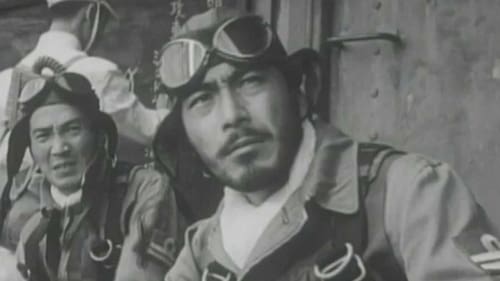
Японский адмирал Исороку Ямамото — блестящий тактик и верный подданный императора. У него есть серьёзные опасения по поводу того, чтобы вести Японию к войне с Соединёнными Штатами. Ямамото выступает против нападения на Пёрл-Харбор, но его возражения отклоняют. И он ведёт свои войска в бой.

Kingoro Yanagiya's 100th film.

1952 Japanese film directed by Kunio Watanabe.

"My mother is Japanese, a drifting diva of Tokyo" After the death of her father Reika goes to Japan to visit her mother, but can't find her, so she starts performing at a cabaret in Yokohama. Her mother, already settled, found about Reika's whereabouts, but won't acknowledge her daughter for fear of loosing her current status.

На землях замка Набэсима происходят странные вещи: люди напуганы криками страшной кошки, неизвестно откуда появляется доска для игры в го, которая становится причной раздоров и ссор, люди бесследно исчезают. Кто во всем этом повинен, призраки из иного мира или реальные злоумышленники, которые специально сеют панику и раздор?

Kôfuku eno shôtai - Invitation to happiness

Под руководством майора Китамуры кадеты младших классов усиленно тренируются до изнеможения. Г-н Мацуда и директор Такада, оба с Корейского полуострова, также приложили все силы, чтобы привить своим корейским ученикам японский характер. Мацуда-сенсей заботится об Эйко, чей брат ушел добровольцем, но Эйко не может подойти к Мацуде из-за своих семейных обязанностей. Когда было объявлено, что приказ о призыве вступит в силу и в Корее, кадеты стиснули зубы в надежде стать солдатами императорской армии и продолжили обучение.
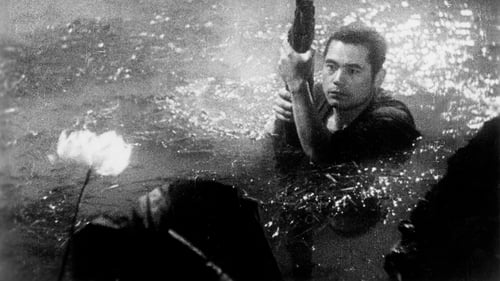
Toranosuki Niiseki
Фильм повествует о развитии дзюдо в Японии конца 19-го века. В центре сюжета — молодой человек Сугата Сансиро, прибывший в большой город с целью изучать боевые искусства. Сначала он попадает в школу джиу-джитсу, но после того, как видит, что его новый наставник устраивает на своего конкурента — легендарного учителя дзюдо Сюгоро Яно подлую засаду и с позором оказывается повергнут им, Сугата упрашивает Яно взять его в ученики. Однако, путь воина, тернист и сложен не только своими физическими нагрузками, но и твёрдым моральным кодексом, подчинения которому требует Сюгоро Яно от своих учеников. Однажды из-за юношеской горячности преступив его, Сугата прыгает в пруд, повинуясь повелению учителя: «Умри!», и проводит в ледяной воде целую ночь. На рассвете он видит, как над поверхностью воды распускается цветок лотоса…

Isamu
Hanakosan (1943, TOHO, MAKINO Masahiro), a thoroughly light and joyful musical comedy, influenced by Busby Berkeley films, against the national policy under the wartime, was made into a film from comic serials by SUGIURA Yukio published in a magazine.
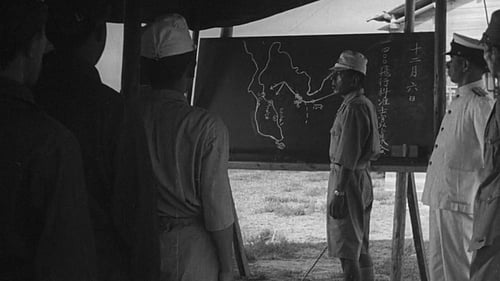
Tadaaki Tachibana
Война на море от Гавайских островов до Малайзии режиссера Кадзиро Ямомото - это крупнобюджетный фильм со спецэффектами, снятый в честь первой годовщины атаки на Перл Харбор. На ту пору это был самый дорогой японский фильм за всю историю кино. Батальные сцены, снятые при помощи миниатюрных моделей, были настолько реалистичны и так искусно смешаны с архивными съемками, что некоторые американцы, смотревшие этот фильм после войны, думали, что все это - съемки реальных боевых действий. Благодаря этому фильму все узнали, насколько хорошим мастером спецэффектов является Эйдзи Тсубурайа. Далее он создавал миниатюры для фильма Годзилла 1954-ого года. Съемки нападения на Перл Харбор казались такими реальными, что верховное командование союзных войск конфисковало его и продало компании Мувитон Ньюз Корпорэйшн. И кадры из этого фильма показывались как реальные съемки нападения японцев на Америку.
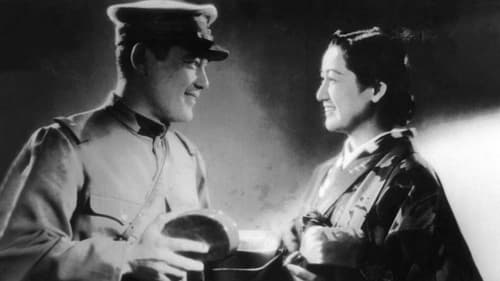
In this semi-documentary, an older locomotive driver is tasked with training younger ones and is currently training two in particular. The old man is finding the task overwhelming as it is hard work with practical lessons and classroom components. His wife has died, but he has three daughters with the oldest taking care of her younger siblings.


























